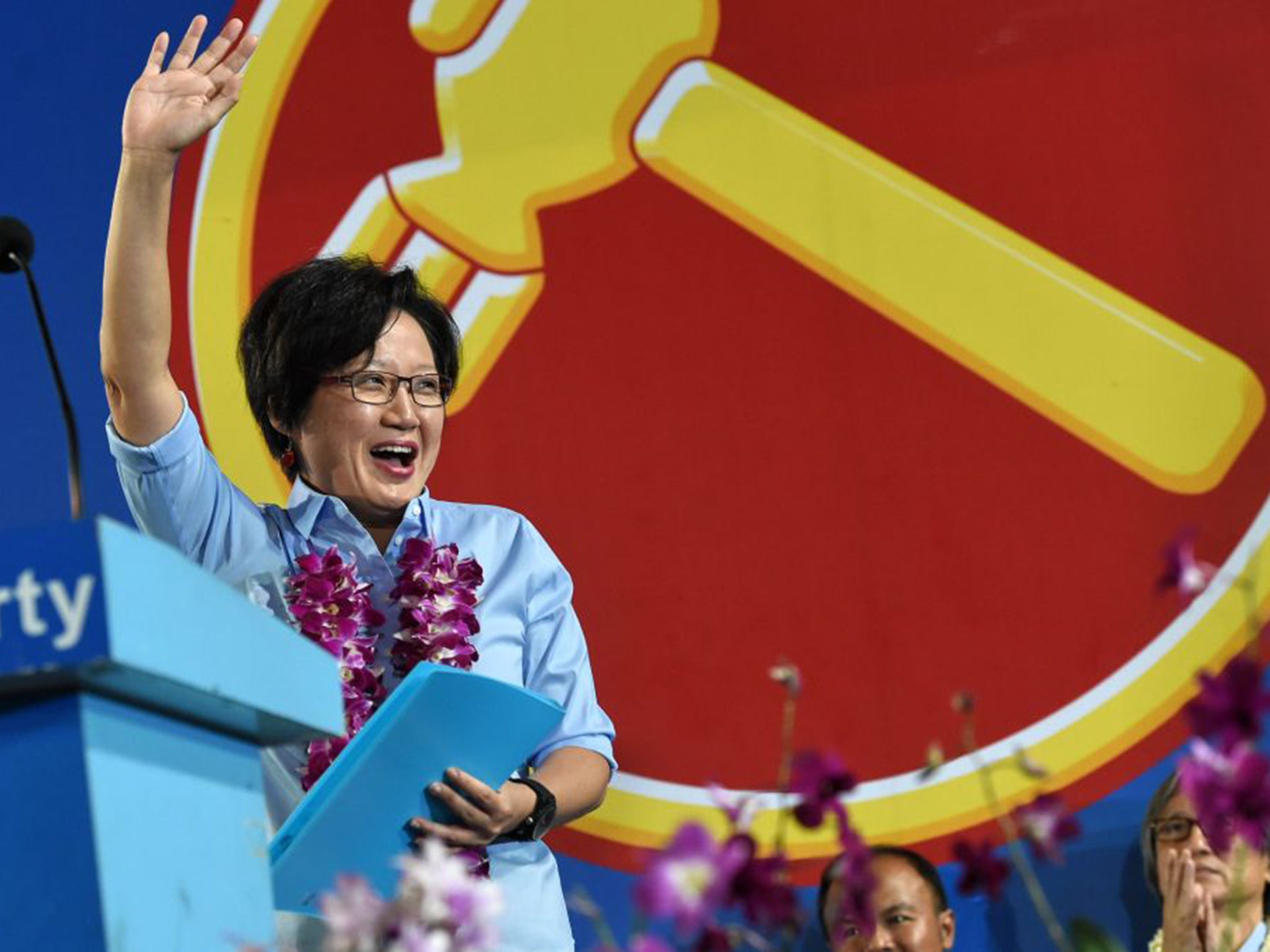Singapore election: Opposition leader Sylvia Lim hopes to bring reform by riding an anti-establishment wave
Her Workers' Party are presenting the stiffest challenge ever faced by the ruling People's Action Party

As the day turned into night, around 30,000 gathered to hear Singapore’s opposition leader, policewoman-turned law teacher-turned-politician, Sylvia Lim.
Ms Lim is the face of Singapore’s resurgent opposition that just three elections ago in 2001 had hit a political low ebb. Its leader had been bankrupted after contesting a series of lawsuits unleashed by the ruling People’s Action Party (PAP). The Workers’ Party and another opposition group had only one seat each in the 84-member parliament.
As Singapore heads into another general election on Friday, the PAP is set to extend its 50-year hold on power by another five years. Only, this time Ms Lim and her colleagues in the Workers’ Party – are presenting the stiffest challenge ever faced by the PAP, and will emerge as a potent force in what has been a virtual one-party state.
“Have you seen how the PAP deals with the opposition? You need a lot of guts to come out and speak up against them,” said oil technician Voon Swee Heng, 59, at Ms Lim’s rally last Sunday where blue party flags with the hammer symbol abounded. “I like to hear her talk. She flags up Singaporean issues like that of population, train breakdowns and education. Things that concern me.”
The Workers’ Party is riding an anti-establishment wave, thanks to the disenchantment with the PAP over the rising cost of living, income inequality, restrictions on freedom of expression, and a rising tide of immigration to fill not only low-paying jobs but also middle and high-paying positions.
The frustrations have eroded the popularity of the PAP. Led by Singapore’s founding leader Lee Kuan Yew (who died in March), the party established itself through an enviable track record after taking the reins of power in 1965 when Singapore became independent.
The PAP government raised standards of living by attracting foreign investors, promoting a free market, emphasising education and running an efficient, largely corruption-free government and civil service.
This year, for the first time in Singapore’s history, opposition parties are contesting all 89 seats at stake. The Workers’ Party, which holds seven seats in the outgoing parliament, is fighting for 28 seats, most of them in its stronghold of eastern Singapore. “I think it’s all very healthy. There is an aspiration for Singapore to be developed, in terms of its democratic processes as well. It’s very hard for Singaporeans to live in a cocoon,” Ms Lim, 50, said.
AP
Subscribe to Independent Premium to bookmark this article
Want to bookmark your favourite articles and stories to read or reference later? Start your Independent Premium subscription today.

Join our commenting forum
Join thought-provoking conversations, follow other Independent readers and see their replies